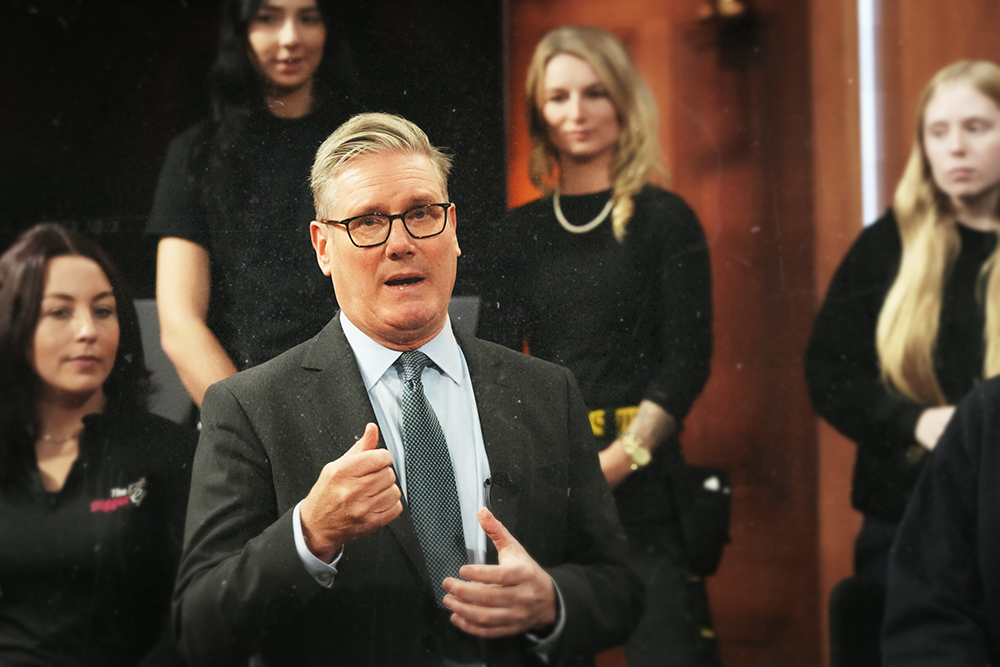The countdown is on, with only a year to go until Scottish voters cast their ballots in the 2026 Holyrood election. This is why SNP First Minister John Swinney has decided to bring forward his Programme for Government – usually held in September – to today, allowing him a full twelve months to deliver on his latest set of commitments before his party’s popularity is put to the test in next year’s poll.
Having taken on the top job only a year ago, Swinney has had limited time to turn his vision for Scotland, organised across four clearly-defined priorities, into a reality. The First Minister acknowledged at the beginning of his speech today that voters want to see the quality of their lives improve – yet after almost 18 years in power, during which public services have become more strained and the cost of living crisis has worsened, it is becoming harder for SNP politicians to prove that they have the capacity to deliver.
John Swinney’s Programme for Government wasn’t especially radical, but it’s not clear that it needed to be
Swinney’s speech touched on the priorities he has championed since he became First Minister last April: economic growth, fairer distribution of wealth, green industrialisation and improved public services. He spent much of today’s announcement talking about how his SNP government was going to further its progress in these areas – yet despite the fanfare about an early Programme for Government there wasn’t all that much in today’s statement that was new.
The biggest announcement concerned Scotland’s rail travel: from September this year, peak fares will be scrapped to help encourage commuters to ditch their cars for public transport in a move that jointly aims to reduce carbon dioxide emissions. While it’s a win for commuters travelling between Scotland’s central belt cities, there remains much to be done to improve travel connections across the country if the government wants to curb car travel. And in other train-related news, the SNP government will lift the blanket ban on drinking alcohol in trains – a move ex-SNP MP Mhairi Black will likely welcome.
On business, the First Minister announced a six-point export plan and a ‘proof of concept’ fund intended to help small businesses grow. Doubling down on the SNP’s commitment to the ‘just transition’, Swinney called on the UK government to help fund the development of carbon capture projects like the Acorn project in Aberdeenshire, and promised to remove the cap on the £80 million sum his government had initially pledged towards the scheme if Sir Keir Starmer backed the venture.
Not one to resist taking a pop at the Labour party, Swinney used his statement to hit out at the Westminster government over Grangemouth. He accused Starmer of having ‘moved heaven and earth’ for the British Steel plant in Scunthorpe but not doing similar for Scotland’s last oil refinery despite making pre-election promises that he would protect refinery jobs. Scotland Office minister Kirsty McNeill has accused the SNP of ‘manufacturing grievance’ over the issue, while nationalists suggest that it all comes down to geography. It plays perfectly into SNP attack lines, anyway: ‘Scotland is little more than an afterthought to the UK government,’ Swinney warned in today’s statement.
Much of the First Minister’s announcement underlined previous Scottish government policies, with the Scottish Child Payment reliably wheeled out again as Swinney reaffirmed that the ‘moral compass of my government’ is to see the ‘eradication of child poverty’ in Scotland. On the health service, Swinney promised to allocate a greater proportion of NHS funding – a third of the Scottish budget – towards primary care services, to ensure the delivery of an extra 100,000 GP appointments in the next 12 months.
A charge of hypocrisy could be levelled at the First Minister, however, on his insistence that ‘many’ of Scotland’s public services ‘already do’ exceed expectations: the nationalists frequently accuse Labour of lacking transparency and Swinney’s claim is not one that many in Scotland would identify with. The stats don’t back it up either: A&E waiting times remain well off the four-hour target, the poverty-related attainment gap remains wide and the Scottish public is increasingly irate about the fact their high taxes don’t translate into tangible public service improvements.
Swinney’s Programme for Government wasn’t especially radical – and think tanks like the IPPR have been quick to criticise its lack of detail – but it’s not clear that it needed to be. Under the latest First Minister, support for the SNP has climbed again after a tumultuous few months following Nicola Sturgeon’s resignation and under Humza Yousaf’s premiership. Swinney’s tactic of keeping his head below the parapet is working: there are fewer instances of overt infighting, the party’s head office has been reorganised in a DOGE-style manner to work more efficiently and the party is slowly but steadily moving away from an overly-progressive agenda dating back to the days of the coalition with the Scottish Greens.
Notably, while Swinney didn’t shy away from attacking Westminster, there was little mention of independence in the First Minister’s speech today. In fact, not speaking about secession seems, rather curiously, to be helping the SNP build back support. Instead, there are high hopes that Swinney’s toned-down approach – aided this afternoon by Sturgeon’s impromptu, and far more headline-grabbing, press conference outside the Chamber – will help persuade voters that the grown ups are back in the room ahead of next year’s poll.
While growing support for Reform looks likely to split the unionist vote next year, the Nats don’t need to do all that much to remain the largest party in Scotland in 2026. Swinney’s statement today shows they realise that too.








Comments